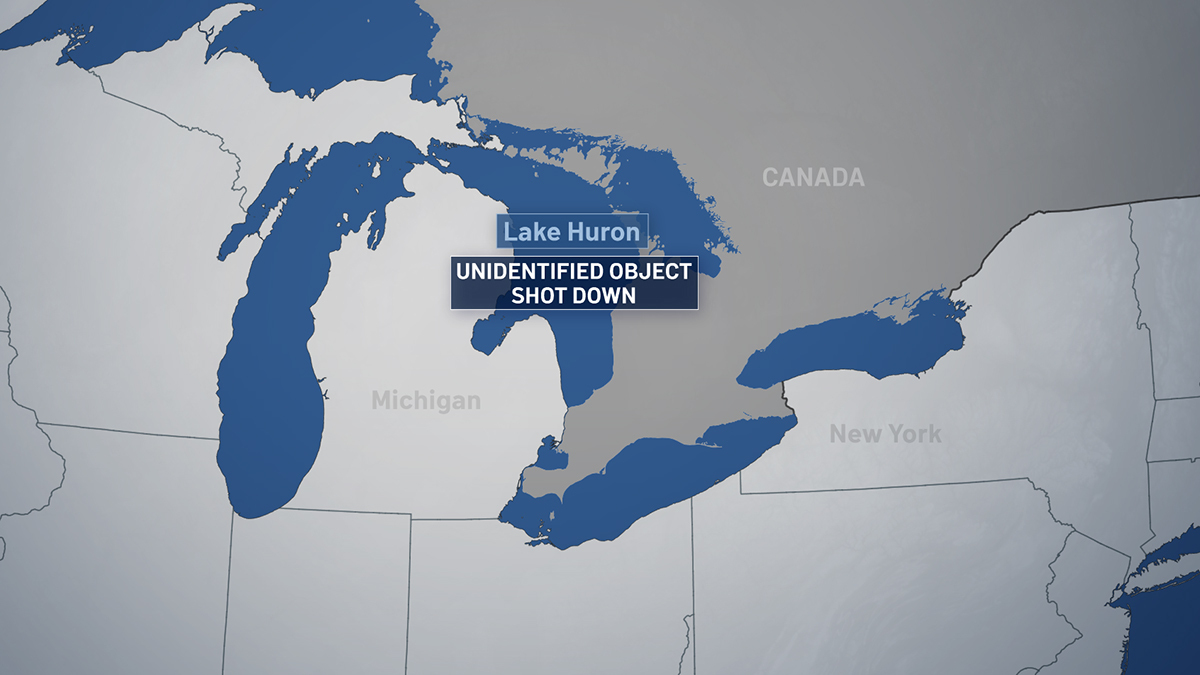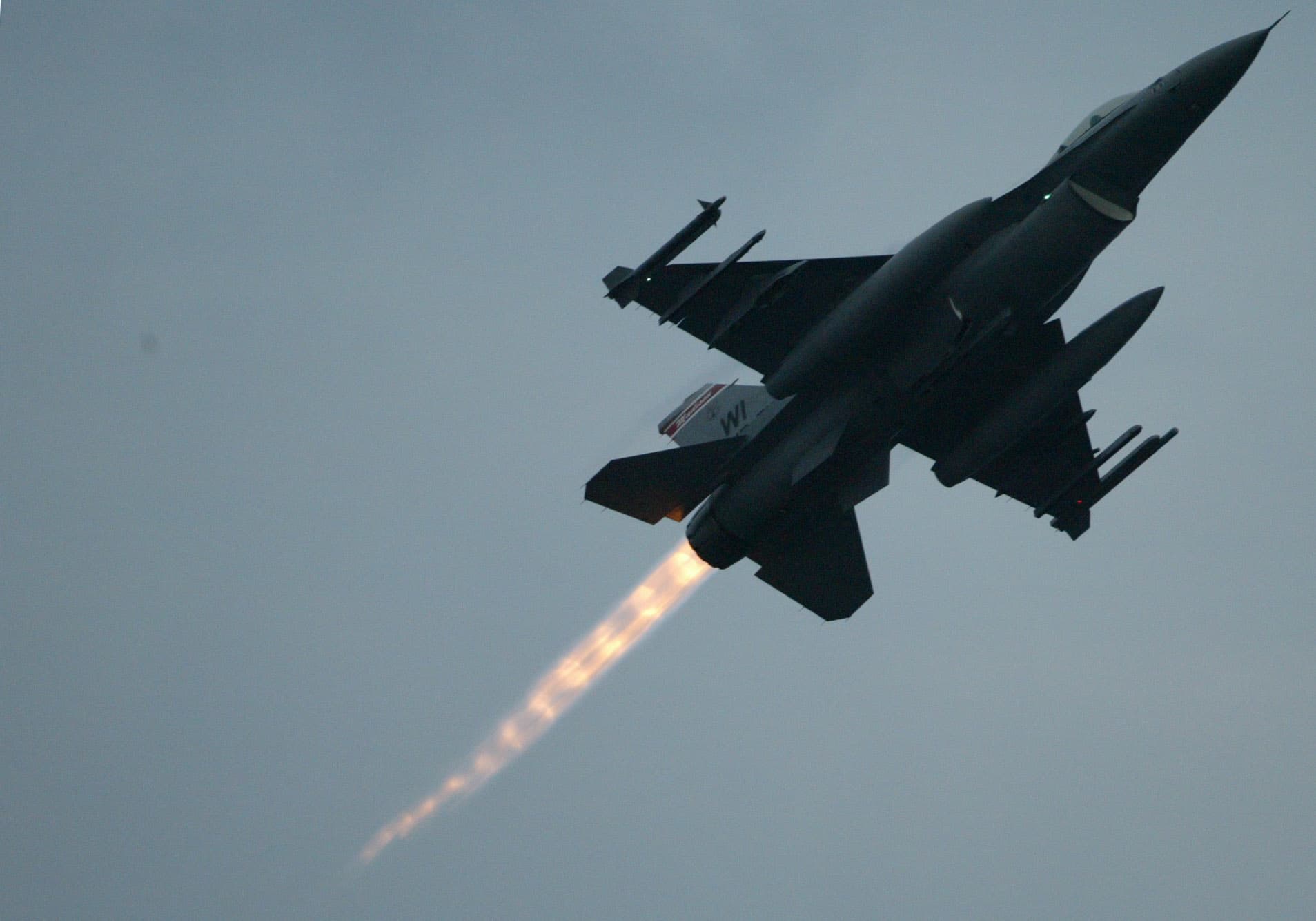The White House on Monday defended the shootdowns of three unidentified objects in as many days even as it acknowledged that officials had no indication the objects were intended for surveillance in the same manner as the high-altitude Chinese balloon that traversed American airspace earlier this month.
The three objects, including one shot down Sunday over Lake Huron, were unmanned and traveling at such a low altitude as to pose a risk to civilian commercial air traffic, said White House national security spokesman John Kirby. And though the Biden administration does not yet have evidence that they were equipped for spying purposes, officials have not ruled that out either, he said.
“These were decisions based purely and simply on what was in the best interests of the American people,” Kirby said of the action to shoot them down.
The weeks-long succession of objects, starting with a giant white orb first detected over U.S. skies in late January, has puzzled American officials and stirred curiosity around the world. Though the three most recent objects differed in size, maneuverability and other characteristics from the surveillance balloon shot down Feb. 4 off the Carolina coast, officials moved to eliminate each one from the sky — actions that Pentagon officials believe have no peacetime precedent.
The Hurricane season is on. Our meteorologists are ready. Sign up for the NBC 6 Weather newsletter to get the latest forecast in your inbox.
“Because we have not been able to definitively assess what these most recent objects are, we acted out of an abundance of caution to protect our security, our interests and flight safety,” Kirby said.
One possibility that the U.S. has been able to rule out is any connection to extraterrestrial activity, the White House said Monday, tamping down lighthearted public speculation about aliens and outer space.
“I know there have been questions and concerns about this, but there is no — again, no — indication of aliens or extraterrestrial activity with these recent takedowns,” White House press secretary Karine Jean-Pierre said at the outset of a press briefing.
Other Western nations are also trying to assess the spate of incidents. British Prime Minister Rishi Sunak said Monday that the government would do “whatever it takes” to protect the country, as the U.K. announced a security review. And Canadian Prime Minister Justin Trudeau said “there is some sort of pattern” to the balloon and three other objects, though the U.S. has not echoed that claim.
Kirby spoke from the White House podium hours after China alleged that more than 10 U.S. high-altitude balloons have flown in its airspace during the past year without its permission. American officials have vigorously denied the claim, with Kirby saying Monday, “We are not flying surveillance balloons over China.”
The Chinese allegation came after the U.S. shot down a suspected Chinese spy balloon that had crossed from above Alaska to South Carolina over a period of multiple days, sparking a new crisis in bilateral relations that have sunk to their lowest level in decades and prompted Secretary of State Antony Blinken to cancel a planned visit to China.
At the time, Blinken said he hoped to reschedule the trip at an appropriate time. but there are several upcoming opportunities for high-level talks with the Chinese, including as early as this weekend. Blinken and Wang Yi, the Chinese Communist Party foreign policy chief, will both be in Munich, Germany, for the annual Munich Security Conference that begins Friday.
The State Department said no meeting between the men has been scheduled but spokesman Ned Price added that the U.S. is “always assessing options for diplomacy.” “We are open and we are committed to keeping lines of communication open,” he told reporters.
The latest of the three objects was shot down Sunday over Lake Huron after being detected a day earlier over Montana.
On Friday, the North American Aerospace Defense Command, the combined U.S.-Canada organization known as NORAD that provides shared defense of airspace over the two nations, detected and shot down an object near sparsely populated Deadhorse, Alaska.
Later that evening, NORAD detected a second object flying at a high altitude over Alaska, U.S. officials said. It crossed into Canadian airspace Saturday and was over the Yukon, a remote territory, when it was ordered shot down by Trudeau.
In both of those incidents, the objects were flying at roughly 40,000 feet (12,000 meters). The object on Sunday was flying at about 20,000 feet (6,000 meters).
None of the three most recent objects has been recovered, Defense Secretary Lloyd Austin told reporters in Brussels, where he was scheduled to attend a NATO defense ministers meeting this week.
Austin said weather has impeded recovery efforts in Alaska, while in Canada the object was shot down in a very remote area that was also impeding efforts. In Alaska, where the object landed on sea ice, wind chill and safety concerns “are dictating recovery timelines,” he said.
The latest of the three objects was shot down Sunday over Lake Huron after being detected a day earlier over Montana.
On Friday, the North American Aerospace Defense Command, the combined U.S.-Canada organization known as NORAD that provides shared defense of airspace over the two nations, detected and shot down an object near sparsely populated Deadhorse, Alaska.
Later that evening, NORAD detected a second object flying at a high altitude over Alaska, U.S. officials said. It crossed into Canadian airspace Saturday and was over the Yukon, a remote territory, when it was ordered shot down by Trudeau.
In both of those incidents, the objects were flying at roughly 40,000 feet (12,000 meters). The object on Sunday was flying at about 20,000 feet (6,000 meters).
None of the three most recent objects has been recovered, Defense Secretary Lloyd Austin told reporters in Brussels, where he was scheduled to attend a NATO defense ministers meeting this week.
Austin said weather has impeded recovery efforts in Alaska, while in Canada the object was shot down in a very remote area that was also impeding efforts. In Alaska, where the object landed on sea ice, wind chill and safety concerns “are dictating recovery timelines,” he said.
.



